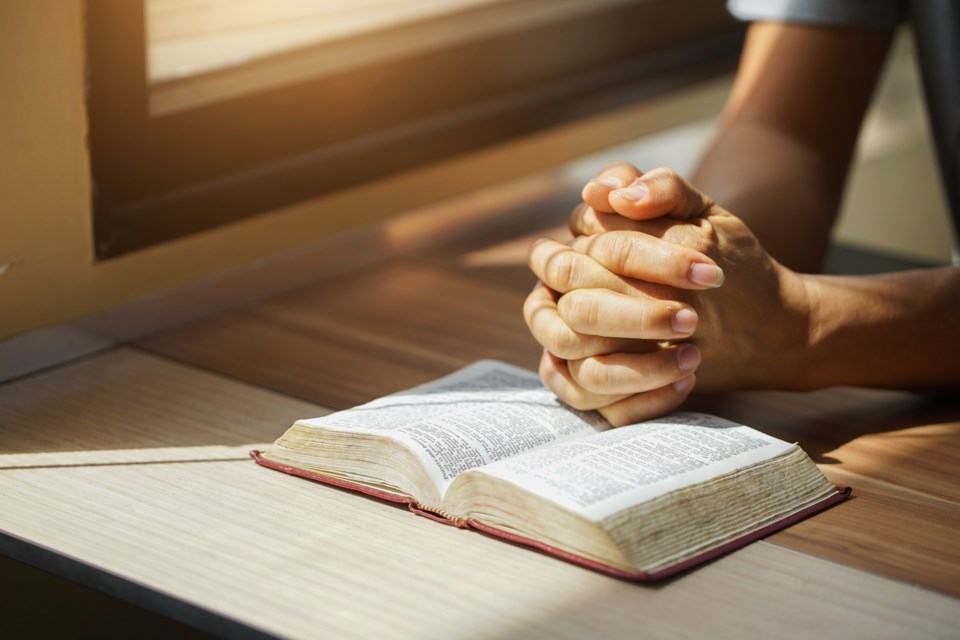ASSINIBOIA - If we look at the news today, we see spectacles of division, rancour, recriminations, and hostility between opposing factions. And many of the people on either side purport to be Christians. We hear about how the coronavirus pandemic is sowing enmity between friends, families, spouses and churches. How is a Christian to deal with this?
First, we must remember that God Himself is ultimately in charge. The bitter fights, the sullen silences, the discord and distrust are the result of human sin. But God will redeem us in the end, despite our fallen natures. When Israel was in slavery in Egypt, God rescued them. When they wandered in the desert for 40 years, God promised them a land flowing in milk and honey.
When Israel was taken to Babylon in captivity, God did not forget them but redeemed them and restored their land. When the church was persecuted over the centuries, God has not forgotten His people, but his promises have always been fulfilled. Therefore, we look to hope that this pandemic, too, will pass and God will sustain us.
Second, we hold to the precepts of the Ten Commandments. In the 5th commandment, God tells us “thou shalt not murder.” Martin Luther, in his Small Catechism, has summarized succinctly the implications of this commandment: We should fear and love God, so that we do no bodily harm to our neighbour, but help and befriend him in every need.
Third, we must realize that, among Christians, there may be differences of opinion on how best to accomplish these measures. We must never lose sight, though, that these measures are for our neighbour’s sake, not ourselves, and we can adopt Christian forbearance among ourselves even when we disagree, and recognize that “Salvation belongs to our God, and to the Lamb” (Rev. 7:10) and not by our own deeds.
St. Paul was forced to deal with a similar situation in the church in Corinth. There, meat from animals sacrificed from idols was sold publicly. You might say that it was public policy.
In fact, it was often impossible to tell if the meat on the market was from animal sacrifices, or simply a butchered animal! Many Corinthian Christians reasoned that, since they themselves were not participating in idol worship, it was fine to buy meat in the marketplace. After all, meat is meat. Other Christians were horrified, and believed that to eat meat once sacrificed to idols was to implicitly condone worship of idols. Apparently, there was conflict between the two groups of Christians.
What does Paul advise? Well, he agrees with those Christians who believe that “meat is meat” and that it is perfectly okay to eat. But he recognizes that Christians must be charitable towards one another. He says “Be careful, however, that the exercise of your rights does not become a stumbling block” (I Cor. 8:9). In other words, don’t flaunt your particular beliefs in front of your fellow Christian and make them uncomfortable and tempt then to sin! Paul says that he would in fact refrain from eating meat entirely if he were in the company of those who believed it be wrong! Paul recognizes the contradiction between freedom and service: “Though I am free and belong to no one, I have made myself a slave to everyone.” (I Cor. 9:9).
Luther crystallized this sentiment in On the Freedom of the Christian saying: “A Christian man is the most free lord of all, subject to none. A Christian man is the most dutiful servant of all, and subject to everyone.”
We can take inspiration from St. Paul. We have had public policy regarding the pandemic, which many Christians agree with but some don’t. During this time, we as Christians are most certainly called upon to ensure that no harm comes to our neighbour. We must not only care for our neighbour who is sick but also be diligent in our efforts to ensure that our neighbour does not fall ill. We look to physicians and scientists for the best advice to do this. Whether we agree with them or not, we obligated to follow these measures. We must never lose sight that, regardless of government direction, we, as individual Christians, are called to do even more for our neighbour. Even when mask mandates are lifted at the end of month - and we will be free to go maskless, and vaccines will not be required, many of us will still decide to wear masks, forego certain social gatherings, and to continue certain common measures believed to reduce the spread of infection. We do not do this to spite or shame others, but we ask to be understood that we are doing this out of concern for our neighbour’s well小蓝视频.
Conversely, some Christians disagreed with public policy, and with the lifting of public policy, now have the freedom to go maskless, etc. And some of us who do choose to go maskless, we must then be careful that our exercise of rights does not become a stumbling block to our neighbour and instead deign to mask in the presence of others who do believe we should mask.
We should do all this in a sense of Christian charity, and refuse to lobby accusations at one another and recognize that our unity is found not in governments, in political parties, or social positions but rather in the death and resurrection of Jesus Christ, to whom we are bound through baptism. If we extend Christian charity to one another, regardless of differing beliefs on public policy, we will truly make true the words of the psalm “How good and pleasant it is when God’s people live together in unity!” (Ps. 113:1)




